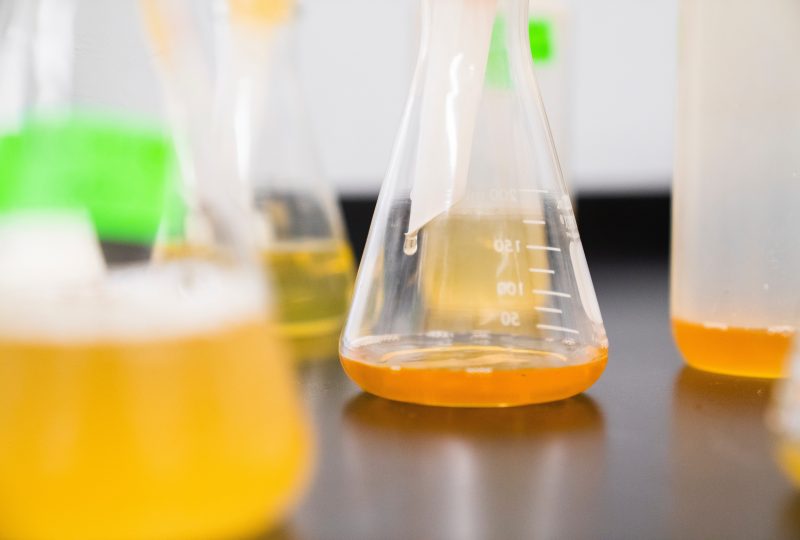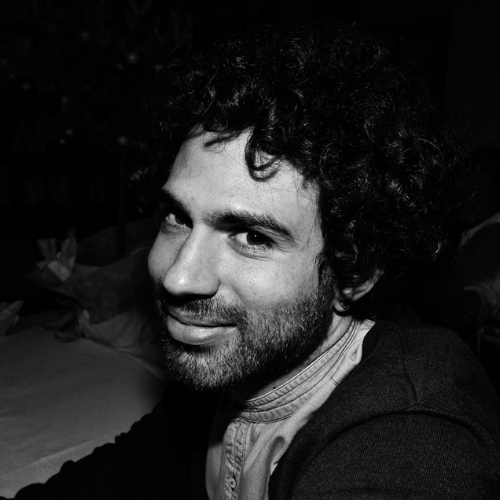Structural biology: studying the infinitely small to discover the immensely large
19 December 2018 | Written by Thomas Ducato
We interviewed Irene Feliciotti, a PhD student at the University of Reading, who is studying the molecular mechanisms of prebiotics

“We are what we eat”. This sentence, attributed to the German philosopher of the 19th century Feuerbach, finds today important scientific confirmations. What happens in our intestine has effects not only in several metabolic and physiological process, but also in brain with effects on mood and neuronal developmental disorders such as Alzheimer’s or Parkinson’s diseases.
Nowadays, however, we are not yet able to identify all the molecular mechanisms behind these effects: thanks to structural biology, genetics and innovative techniques and technologies, scientific research is making important goals.
Irene Feliciotti, PhD student at the University of Reading, is in charge of this fascinating field of study. Her research focuses on prebiotics, substances that are not digested by the human body but are able to improve microbial population’ fitness in the gut.
Irene, graduated in Perugia in Biological Sciences, completed her Master degree in Biology Applied to Biomedicine, Focused in Neurobiology, at the University of Pisa. After attempting to continue her studies with a doctorate in Italy, she decided to move to the United Kingdom: first at the University of St. Andrews, in Scotland, where she collaborated with Neurogenetic research group, thanks to a European funding project. Then she moved to University of Reading, which gave her the opportunity to start a doctorate in Structural Biology.
We interviewed her, to find out more about this research and its impact on people’s lives.
Tell us more about your research…
My project focuses on the study and the structural and functional characterization of enzymes coming from a particular strain of Lactobacillus plantarum, a beating of the gut microbiome. These enzymes produce substances that are sold as prebiotics.
What is the purpose of this study?
Current research shows a connection between the presence of this bacterium and some beneficial effects in the regulation of the metabolism of bile acids, vitamins, sugars and cholesterol. It is well known that the alteration in the balance of our gut microbiome is able to influence different metabolic and physiological processes, even to have effects on brain activity, mood and neuronal development. In recent years there has even been a correlation between the balance of bacterial flora and autism. Few research, however, has succeeded in establishing the molecular mechanisms that govern these effects.
Are the effects known, but not the mechanisms that cause them, then?
Exactly. Today it seems that the value of a prebiotic on the market is measured according to the quantity of elements present. These considerations are based only on statistical associations and not on a real knowledge of the effects of each individual component. In short, we know the effects, but we do not know what the underlying mechanisms are. Therefore, we cannot act in a direct and effective way. Thanks to the bioinformatics and protein engineering techniques available, it is possible now to study the structure of the molecules up to the atomic level with a high precision, to be able to deduce the mechanism of action and modify it.
Why are these mechanisms still almost unknown?
To analyze these mechanisms, we use a lot of innovative techniques, which until a few years ago seemed like science fiction. We use new technologies, which allow us to analyze infinitely small mechanisms, which however go to apply to “huge” aspects such as our diet or brain. In general, this is the luck of those involved in molecular biology today: you can do things that until a few years ago were unimaginable, thanks to technological evolution.
What can be the scope of this study?
It allows us not only to bring more and more information in the field of molecular biology, but also to improve the production of prebiotics available on the market and learn more about all their properties and their possible uses. We talk about products that are also considered medical devices and make them more “performing” is an important goal. Moreover, being able to have more targeted products would be a big advantage for companies that can save energy and resources and cut production time in half.
So, in the medical field, is the goal to have “personalized” products?
At the medical and pharmaceutical level today, some products are still generic. The evolution, once including the mechanisms behind certain effects, is to be able to use prebiotics in a personalized way, for specific and targeted treatments and applications.
This production-related implication is already present in the research you are conducting…
Yes, it is research project with a commercial application and I collaborate with a company that develops prebiotics and probiotics. The role of companies is fundamental for this type of research , not only from the economic point of view: unlike what happens in purely academic field, where the principal aim seems about being published in these project there is a different goal, which is “the product”. This allows you to see your research turning into something extremely concrete.
Over the years, you’ve often changed your search field. Does this project allow you to use skills acquired in the past?
I think that, like many scientists, what really excites me is to discover things down to the smallest detail. I changed the approach perhaps, but the goal has always been to try to find out more things as possible in the world of biology. Molecular biology is a complex discipline that interfaces various know-how such as physics, mathematics, chemistry, zoology and so on and so forth.
In this case, we are talking about Structural Biology approach, but there are many links with other fields. It is a very “open” project, starting from prebiotics and proteins, but there are strong links with other disciplines such as genetic engineering and microbiology. Furthermore, I will also try to develop the neurobiology aspects related to this study. Seeing how these products can affect the brain is very interesting.
So, the next step will be to study the intestine-brain connections?
What we will find from the structural study will also be fundamental to understand what direction the research will take in the near future. The curiosity and the “desire for discovery” will be there in any case and in every aspect of Biology.





